by Lisa Cooke | Apr 10, 2015 | 01 What's New, images, Libraries, Maps
 Next time you’re trying to find old maps online, take a look at OldMapsOnline.
Next time you’re trying to find old maps online, take a look at OldMapsOnline.
As the site explains, “The OldMapsOnline Portal is an easy-to-use gateway to historical maps in libraries around the world.” And not just a few minor libraries, but a long list of major libraries, like:
- the British Library
- David Rumsey Map Collection
- Charles University (Prague)
- Dutch National Archives
- Geo-spacial.org (Romanian)
- Harvard Library Map Collection
- Map Library of Catalonia
- Land Survey Office Czech Republic
- the National Libraries for nations like Scotland, Wales and Colombia
The portal allows the user to search for online digital historical maps across numerous different collections via a geographical search. Search by typing a place-name or by clicking in the map window, and narrow by date. The search results provide a direct link to the map image on the website of the host institution.”
by Lisa Cooke | May 23, 2014 | 01 What's New, MyHeritage
 MyHeritage has signed on to sponsor The Genealogy Gems Podcast! Their support helps us to continue to bring you free multimedia content to inspire and inform your genealogy journey.
MyHeritage has signed on to sponsor The Genealogy Gems Podcast! Their support helps us to continue to bring you free multimedia content to inspire and inform your genealogy journey.
Our editorial team has spent several months getting to know MyHeritage.com. We think you’ll love their…
International membership. MyHeritage serves over 70 million members worldwide in 40 languages. Did your English-speaking ancestors originate in the British Isles? Are you discovering Sephardic roots in Spain? MyHeritage members may be your cousins—or know something about them. Check out their world membership map here.
24/7 record searching technology. MyHeritage uses a unique and powerful search system called Record Matches to constantly cull 5 billion historical records for your family. It’s the only family history interface out there using semantic analysis to search newspaper articles, books, and other free-text documents. It is also the first to translate names between languages. I personally like that matches from MyHeritage’s historical newspaper collections show up toward the top. It’s a great way to find obituaries!
Millions of trees. MyHeritage can search over 1.5 billion records in their own 27 million trees and recently-acquired Geni.com’s unified tree. From a single screen, members can search all those trees plus WikiTree and other trees. But you don’t even have to search. MyHeritage’s unique Smart Matching technology intelligently matches each family tree to hundreds of millions of profiles in other family trees. Members are alerted when new matches appear on the site.
Offline software companion. Family Tree Builder 7.0 is free software that allows you to keep a master copy of your family tree offline. Read my blog post on that topic here.
Great app. The MyHeritage app for iPhone, iPad and Android 2.2 helps you research, record and share your family history on the go. You can browse records, photo-share, and show off your tree in its beautiful display.
Genealogy Gems will continue to bring you news and gems on a wide range of genealogy topics and companies, not just MyHeritage. But we do encourage you to get to know MyHeritage.com. We choose our advertisers carefully and are very proud to partner with them!
by Lisa Cooke | May 6, 2014 | 01 What's New, Family History Podcast, Immigration
Family History: Genealogy Made Easy Podcast
with Lisa Louise Cooke
Republished May 6, 2014
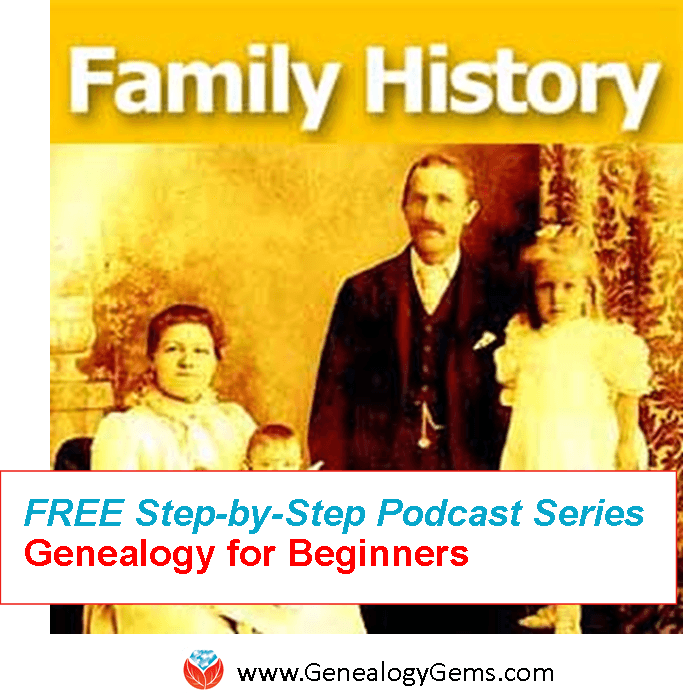
Listen to the Family History: Genealogy Made Easy podcast by Lisa Louise Cooke. It’s a great series for learning the research ropes and well as refreshing your skills.
https://lisalouisecooke.com/familyhistorypodcast/audio/fh30.mp3
Download the Show Notes for this Episode
Welcome to this step-by-step series for beginning genealogists—and more experienced ones who want to brush up or learn something new. I first ran this series in 2008-09. So many people have asked about it, I’m bringing it back in weekly segments.
Episode 30: Immigration and Naturalization Records for Family History, Part 2
This episode continues last episode’s conversation about immigration and naturalization records. With me again is Stephen Danko, PhD, a genealogy lecturer and a very popular blogger. In today’s show Steve and I talk more about passenger lists, and some of the ramifications of an immigrant being detained or deported. We cover the multi-step naturalization process and you’ll hear about a fantastic find in naturalization papers–so fantastic that other researchers at the Family History Library in Salt Lake City wanted a copy!
Here are my favorite take-away points from this episode:
There were no requirements to keep passenger lists in the U.S. before 1820, or in Canada before 1867. (Many people originally arrived in one or the other of these countries, then migrated across the border, which was essentially unregulated before the 1890s.) There may have been records kept, but you’re not going to find them easily.
The passenger lists we’re most familiar with were filled out in the port of departure, then surrendered to U.S. government officials upon arrival. But other records were maintained at the port of departure. Departure information from European ports is often available on microfilm at the Family History Library, on Ancestry.com or other websites. Some of the passenger steamship lines themselves kept departure lists, like the White Star Line or the Red Star Line, and these are on microfilm. Here’s an excellent article on Passenger Departure Lists of German Emigrants, 1709-1914. Look for resources specific to other countries in genealogical guides under the headings “emigration” or “departure lists.”
Immigrants who were deported or even detained for further investigation, the steamship line had to pay the bill. If they were detained or they went back, the date and ship of deportation may be indicated on the passenger manifests.
Naturalization was a multistep process. The “first paper” is the declaration of intent. After a certain period of time, they applied for their petition for naturalization (“second papers”). Eventually they received their certificate of naturalization. After 1926, there may also be a certificate of arrival. (See Episode 29.)
Naturalization records may be at the county level or may be in federal court. Increasingly these are coming online. Meanwhile, some are easier to track down than others. Most Massachusetts naturalizations are available on microfilm and at the Massachusetts State Library. Some books
Many 20th-century naturalizations are packed with family information. Steve shared an example for one of his relatives. Her naturalization had her name, birthdate and birthplace, name of her husband and date of her marriage, her husband’s birthplace and date, the names of all her children, her date of arrival and the ship she came on! Some later naturalizations also have photographs. Microfilmed files may also have the certificate of arrival.
Updates and Links
About 70 million immigration and naturalization records have been indexed in recent years through an enormous community indexing project led by FamilySearch. Check out their site (below) to see what records are searchable now.
Ancestry.com
Ellis Island.org
FamilySearch.org Immigration and Naturalization Online Resources
One-Step Webpages by Stephen P. Morse (Ellis Island Search Tool)
Timeline of U.S. Immigration Laws
by Lisa Cooke | Nov 17, 2017 | 01 What's New, Genealogy Giants Websites, Records & databases
Enjoy millions of new records from the ‘Genealogy Giants’ websites this week: Ancestry, FamilySearch, Findmypast, and MyHeritage! New collections are now available for England, Ireland, the Netherlands, and Denmark. Also new are two collections of WWII Holocaust records.
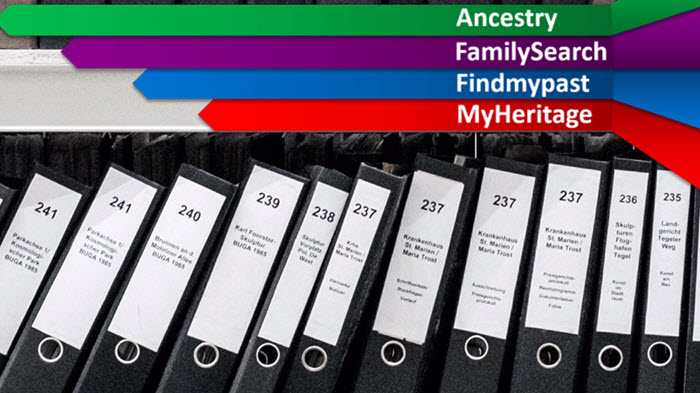
England Records at Findmypast & Ancestry
A massive amount of new records at the ‘Genealogy Giants’ websites were published this week. First up are millions of new English records collections. We’ll start with Findmypast’s new databases:
Surrey, England
- Lay Subsidies 1524-1645: early taxation records from the Tudor and Jacobean periods.
- Court Cases 1391-1835: The records contain cases from four courts and will give you the necessary references for accessing the original records in The National Archives.
- Wills & Probate Index, 1470-1856: The area covered includes the old county of Surrey in the southeast of England, which contains parts of South London.
British Army Records
- Commonwealth War Graves Commission Debt Of Honour: Transcripts will reveal when your ancestor died, their rank, regiment service number, and age at death.
- British Armed Forces, Roman Catholic Registers: The registers comprise records for the British Army, Royal Air Force, and Royal Navy stationed at home and abroad between 1836 and 1975. You can also browse the original registers for this collection.
- British Army Lists 1839-1946: Includes details such as birth date, rank, and unit. You may also browse by year and title.
- East Surrey Regiment 1899-1919: Spanning the Boer War and the First World War, this index may reveal rank, regiment, and battalion, as well as whether your ancestor was wounded or received a medal.
- Railwaymen Died in The Great War: This index of records comes from the National Railway Museum website and may contain details of your ancestor’s pre-war career, military service, and death.
Next, we head to Ancestry for even more new English record collections.
Lastly, FamilySearch has a new collection of Essex Parish Registers, 1538-1997. This collection contains christening, marriage, and burial entries.
Ireland – Findmypast
New at Findmypast for Ireland are British Army, Irish Regimental Enlistment Registers 1877-1924. This collection has enlistment registers from five Irish regiments serving in the British Army. The regiments included in these records are Connaught Rangers, Leinster Regiment, Royal Dunlin Fusiliers, Royal Irish Regiment, and Royal Munster Fusiliers.
A new Irish newspaper title has also been added at Findmypast: the Carrickfergus Advertiser 1884 – 1919. The collection currently contains over 1,300 issues and will be updated further in the future.
Netherlands Public Records at FamilySearch
New at FamilySearch: Netherlands Archival Indexes, Public Records. This collection contains nearly 3 million records that cover events like population registration, emigration and immigration, military enrollment and more.
Denmark – 1930 Census Free at FamilySearch
The Denmark Census, 1930 is now available for free at FamilySearch! “Commonly indexed fields include principle name, locality data, gender, marital status, and relationship to head of household.” The images and index were provided in partnership with MyHeritage.
World War II Holocaust Records and MyHeritage and Ancestry
New at MyHeritage are Auschwitz Death Certificates, 1941-1943. Information listed includes name, birth date, death date, birthplace, residence, and religion. The information originates from the Auschwitz Sterbebücher (Death Books).
Ancestry also has a new collection of Romania select Holocaust Records 1940-1945 (USHMM). This collection is primarily in Romanian, but may also be in Hungarian. It was indexed by World Memory Project contributors from the digitized holdings of the United States Holocaust Memorial Museum.
Get the most out of the top genealogy records websites
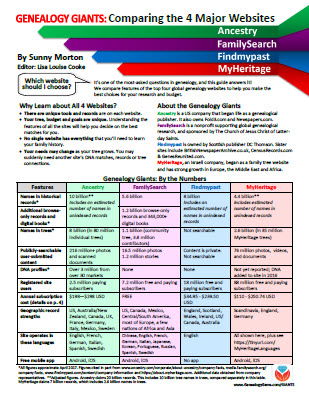 “Which genealogy records membership website should I use?” It’s one of the most-asked questions in genealogy. There are so many features on each site–and an apples-to-apples comparison is laden with challenges. But Genealogy Gems Contributing Editor Sunny Morton has the answers for you in the jammed-packed Genealogy Giants cheat sheet. Use it to quickly and easily compare all of the most important features of the four biggest international genealogy records membership websites: Ancestry.com, FamilySearch.org, Findmypast.com, and MyHeritage.com. Then consult it every time your research budget, needs or goals change. Tables, bulleted lists, and graphics make this guide as easy to use as it is informative. Click here to learn more and grab your copy.
“Which genealogy records membership website should I use?” It’s one of the most-asked questions in genealogy. There are so many features on each site–and an apples-to-apples comparison is laden with challenges. But Genealogy Gems Contributing Editor Sunny Morton has the answers for you in the jammed-packed Genealogy Giants cheat sheet. Use it to quickly and easily compare all of the most important features of the four biggest international genealogy records membership websites: Ancestry.com, FamilySearch.org, Findmypast.com, and MyHeritage.com. Then consult it every time your research budget, needs or goals change. Tables, bulleted lists, and graphics make this guide as easy to use as it is informative. Click here to learn more and grab your copy.
Disclosure: This article contains affiliate links and Genealogy Gems will be compensated if you make a purchase after clicking on these links (at no additional cost to you). Thank you for supporting the free Genealogy Gems podcast and blog!
by Lisa Cooke | Jun 30, 2017 | 01 What's New, British, Canadian, Digital Archives, Findmypast, Newspaper, Photographs, Records & databases, Scottish Genealogy
New digital archives for genealogy host Canadian photos and history magazines, Oregon historical records, and Virginia newspapers. Also this week: Google Maps additions in Canada; Norfolk, England records; England and Wales criminal records; Scottish Presbyterian church records and Glasgow newspapers; and criminal records from England/Wales.
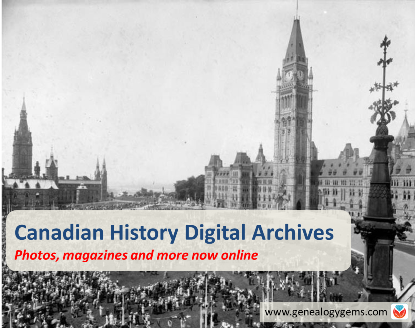
Canada: History Magazines in Digital Archive
Canada’s History Society has launched a new, mobile-responsive digital archive. Canada’s History launches with the entire run of a unique magazine: The Beaver, which explored the history of the Far North from fur-trade colonial days to modern times. “In addition to The Beaver, the archive will feature issues of Canada’s History magazine as well as Kayak: Canada’s History Magazine for Kids,” says a news article. The project was partnered by the Hudson’s Bay Company History Foundation. Its website is also worth exploring if your family history reaches into that part of the world.
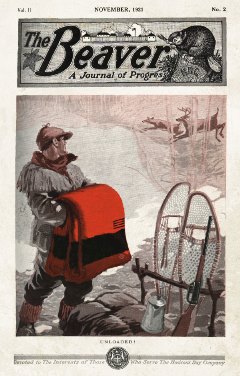
Image courtesy Canada’s History Society.
Canada: Photo Archive
More than 100,000 digitized photos represent the beginning of a new Canada photo archive available to subscribers of The Globe and Mail, which is celebrating its 173rd birthday this year along with the country’s 150th. According to a news article, photo topics “range from a 1901 picture of the Forester’s Arch being erected on Bay and Richmond streets for a royal visit to a Canadian astronomical discovery in the late 1990s. You can search the archive by date or Globe photographer, and there are special collections that cover different aspects of Canadian life.”
England: Norfolk Records
Subscription website Findmypast.com has added to these collections of genealogical records on Norfolk, England (see a Findmypast special offer at the bottom of this post):
- Norfolk Marriage Bonds, 1557-1915. “Browse 444 volumes of marriage bonds from four ecclesiastical courts: the Archdeaconry of Norfolk Court, the Archdeaconry of Norwich Court, the Dean & Chapter of Norwich, and the Diocese of Norwich Consistory Court.”
- Norfolk Non-Conformist Church Records, 1613-1901. Browse “11 registers covering various denominations including Methodist, Quaker, and Baptist in the parishes of Attleborough, Aylsham, Kenninghall, Norwich, Tasburgh, Walsingham, and Wymondham.”
- Norfolk Poor Law Union Records, 1796-1900. Browse “55 volumes covering 20 unions across Norfolk to discover whether your ancestors fell on hard times. Explore 10 different types of records, ranging from baptism and report books to relief lists and court orders.”
England and Wales: Criminal Records
Findmypast.com has finished adding a final installment to its Crimes, Prison and Punishment Collection. About 68,000 records were added that may help you “uncover ordinary and extraordinary stories of criminals, victims and law enforcers from Georgian highway robbers to Victorian murderers, Edwardian thieves, and a whole host of colorful characters in between!”
Scotland: Glasgow Newspapers
The British Newspaper Archive has added the following to its collection of Glasgow newspapers:
- Glasgow Evening Citizen: added the years 1879-1892, so the current collection now tops 20,000 pages and covers 1866-1890.
- Glasgow Evening Post: added the years 1881-1890. The total collection of over 14,000 pages and covers 1867-1890.
Scotland: Presbyterian Church Records
More than 36,000 Presbyterian church records, covering 1744 to 1855, have been added to ScotlandsPeople, a website maintained by the National Records of Scotland. “The 20,255 births and baptisms (1744–1855), 10,368 marriages and proclamations (1729–1855) and 5,422 death and burial records (1783–1855) may be especially helpful for anyone searching for a person who was born or baptized, married, or died before the introduction of statutory registration in 1855,” states an article on the site.
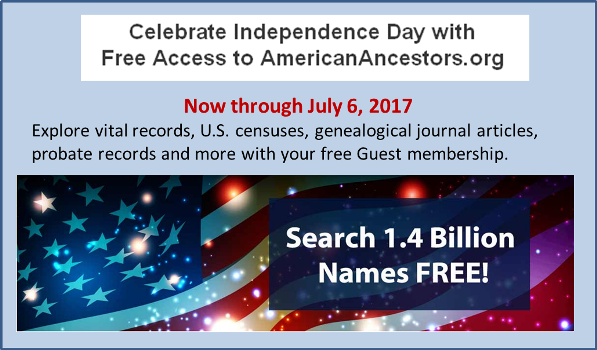 United States: Oregon Digital Archive
United States: Oregon Digital Archive
The Oregon Historical Society has just launched OHS Digital Collections, a new resource for researching Oregonians on your family tree. “This new website allows online public access to a rich variety of materials from the OHS Research Library, including items from the manuscript, photograph, film and oral history collections,” states a Hillsboro Tribune article. More content is planned for this new site, so check back periodically.
United States: Virginia Newspapers
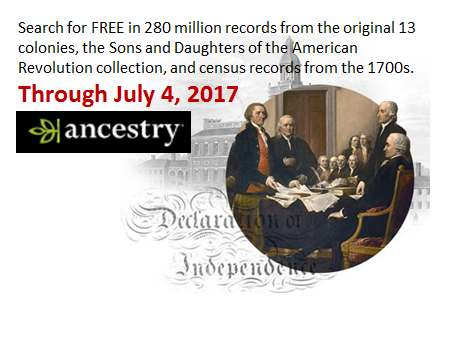 The Virginia Newspaper Project is putting the Library of Virginia’s collection of Civilian Conservation Corps (CCC) newspapers on Virginia Chronicle, a free digital newspaper archive with nearly a million pages. According to an announcement, “The camp newspapers in the LVA’s collection, published from 1934 to 1941 by the young men of the CCC, were mostly distributed in camps throughout the Commonwealth, though a handful are from locales outside Virginia….[The camp newspapers] offer a vivid picture of camp life during the Depression…[and] are also packed with the names of people who were active in the CCC–you might find a mention of one of your relatives among the pages. Click here to learn more about the CCC and the newspapers they produced.”
The Virginia Newspaper Project is putting the Library of Virginia’s collection of Civilian Conservation Corps (CCC) newspapers on Virginia Chronicle, a free digital newspaper archive with nearly a million pages. According to an announcement, “The camp newspapers in the LVA’s collection, published from 1934 to 1941 by the young men of the CCC, were mostly distributed in camps throughout the Commonwealth, though a handful are from locales outside Virginia….[The camp newspapers] offer a vivid picture of camp life during the Depression…[and] are also packed with the names of people who were active in the CCC–you might find a mention of one of your relatives among the pages. Click here to learn more about the CCC and the newspapers they produced.”
 Special offer: Through July 2, 2017, get your first month of Findmypast.com World Subscription for just $1.00! In addition to unparalleled record content for England, Scotland, Ireland and Wales, Findmypast has added tons of great content to its US and Canada collections.
Special offer: Through July 2, 2017, get your first month of Findmypast.com World Subscription for just $1.00! In addition to unparalleled record content for England, Scotland, Ireland and Wales, Findmypast has added tons of great content to its US and Canada collections.
Bonus! Get an exclusive subscriber-only webinar, 20 Unmissable Resources for Tracing Your British and Irish Ancestors, when you sign up!
Full disclosure: This post contains affiliate links and Genealogy Gems will be compensated if you make a purchase after clicking on these links. Thank you for supporting Genealogy Gems!
 Next time you’re trying to find old maps online, take a look at OldMapsOnline.
Next time you’re trying to find old maps online, take a look at OldMapsOnline. To learn more about using old maps online and for genealogy, go to our home page and search on the Maps category on the lower left side of the page. Genealogy Gems Premium members also have access to full-length video classes like 5 Ways to Enhance Your Genealogy Research with Old Maps; Google Earth for Genealogy; Sanborn Fire Insurance Maps (NEW!); and Time Travel with Google Earth. Not a Genealogy Gems Premium member? Click here to become one!
To learn more about using old maps online and for genealogy, go to our home page and search on the Maps category on the lower left side of the page. Genealogy Gems Premium members also have access to full-length video classes like 5 Ways to Enhance Your Genealogy Research with Old Maps; Google Earth for Genealogy; Sanborn Fire Insurance Maps (NEW!); and Time Travel with Google Earth. Not a Genealogy Gems Premium member? Click here to become one!



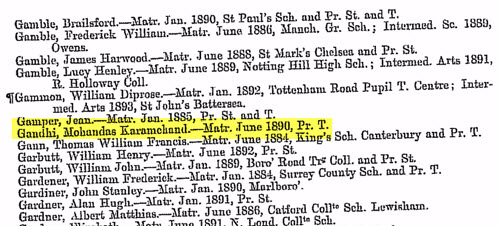





 Special offer: Through July 2, 2017, get your first month of Findmypast.com World Subscription for just $1.00! In addition to unparalleled record content for England, Scotland, Ireland and Wales, Findmypast has added tons of great content to its US and Canada collections.
Special offer: Through July 2, 2017, get your first month of Findmypast.com World Subscription for just $1.00! In addition to unparalleled record content for England, Scotland, Ireland and Wales, Findmypast has added tons of great content to its US and Canada collections.